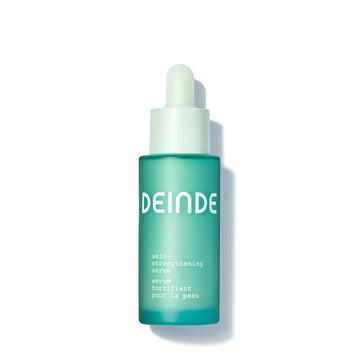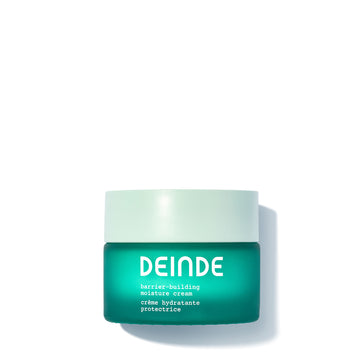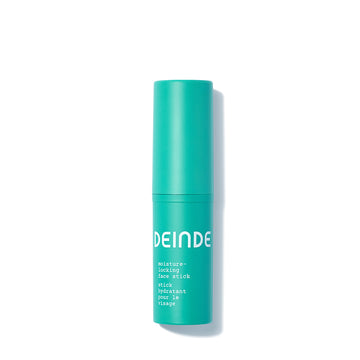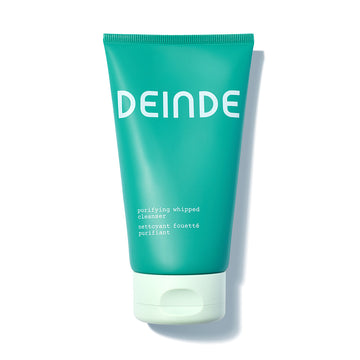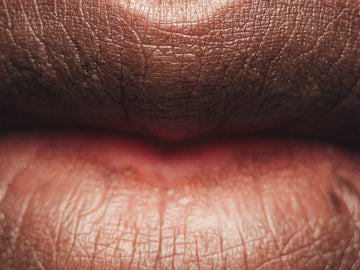
How Often Should You Exfoliate Your Face?
When it comes to exfoliation, it’s safe to say (almost) “everyone is doing it” in some way, shape, or form. While skin knows how to repair itself—shedding dead skin cells as a part of its own reparative process—it still requires manual exfoliation to keep skin’s complexion smooth, bright, and unclogged.
However, there can be too much of a good thing in the world of exfoliation. As the discussion around skincare regimens and maintenance has become so mainstream, so too has the desire to over-exfoliate the skin, which compromises the skin barrier (our favorite topic) to the point of sensitivity, irritation, and even damage.
Before you reach for your bottle of alpha or beta hydroxy acid (AHA/BHA), let us first break down how often you should exfoliate, how to do it, what types of exfoliants use, and why. Let’s dive in, shall we?
The A, B, C's of Exfoliation
Back in the 1990s, we all understood “exfoliation” to mean going to extreme lengths to basically rip the top layer of your skin off with a face wash that had harsh plastic beads in it (IYKYK).
With time, we’ve come to understand that there are options as far as exfoliation is concerned. Two types to be aware of are physical exfoliation and chemical exfoliation.
→ Physical Exfoliation
Think: anything manual. Physical exfoliation includes any form of scrubbing off particles and dead cells on the skin with things like sugar face scrubs, nutshells, or those nasty little beads we mentioned. People also leverage tools like dry or electric face brushes or other cleansing devices that physically polish and slough off the skin.
You will also find professional-level physical exfoliation through derms or estheticians that includes more clinical practices like microdermabrasion or dermaplaning. These techniques are often used on more extreme cases of wrinkles and scar tissue and can require a longer recovery time.
→ Chemical Exfoliation
Think: anything liquid. Chemical exfoliation leans on acids or enzymes in products like cleansers, serums, and moisturizers to more gently dissolve dead skin cells. Some standout liquid exfoliators that have made a name for themselves in at-home skincare over the past decade include alpha hydroxy acids (AHAs) like glycolic acid and lactic acid, beta hydroxy acids (BHAs) like salicylic acid, and enzymes like papain and bromelain.
How to Choose Which Exfoliation Era You Are In
There is no “I” in TEAM, and there are no “shoulds” in skincare.
With so many (young) people on social media showcasing their skincare routines, it can be really hard not to just copy-paste what you’re seeing on your screen. However, choosing what kind of exfoliation you need for radiant skin hugely relies on your own unique skincare type and a multitude of factors. “Context matters,” as they say.
Here are some factors to consider before you add exfoliation to your ever-expanding skincare regimen:
- Skin Type → Different skin types have varying tolerance levels for exfoliation. Those with oily or acne-prone skin may benefit from more frequent exfoliation to prevent clogged pores, while individuals with sensitive or dry skin should exfoliate less often to avoid irritation
- Exfoliant Type → At its core, exfoliation is used to reveal more radiant, glowing skin, but that doesn’t mean that everyone needs the same level of exfoliation to achieve those results. Physical exfoliants are typically harsher on the skin, which also means they may require less frequent use as compared to chemical exfoliants
- Skin Condition → If you're dealing with specific skin concerns like acne, hyperpigmentation, or aging, you may need to adjust your exfoliation frequency accordingly. For example, acne-prone skin may benefit from more frequent exfoliation to prevent breakouts, while those addressing hyperpigmentation may require a more consistent exfoliation routine to promote skin renewal. If you have issues like dermatitis, eczema, or psoriasis, exfoliation might overly dry the skin, making those conditions worse. Obviously do you, but consider consulting with a dermatologist if you have any major skin concern
- Environmental Factors → Environmental factors like sun exposure, pollution, and climate can affect your skin's resilience and tolerance to exfoliation. *cough cough* The skin barrier. For instance, excessive sun exposure can make your skin more sensitive, requiring a more gentle exfoliation approach
Let's Cut To The Chase: How Often Should You Exfoliate Your Face?
While everyone is different when it comes to their skincare routines, there are some general guidelines worth following in order to make sure you’re exfoliating to the best of your potential. Take these timelines with a grain of salt, of course. (But don’t use salt to exfoliate your face. That’s a whole ‘nother topic).
Here are the guidelines for how often you should exfoliate your face:
→ Normal to Oily Skin
If you have normal to oily skin and no specific skin concerns, you might want to consider exfoliating 2-3 times per week. This frequency helps remove excess oil, prevent clogged pores, and maintain a smooth complexion without over-stripping the skin. As you switch up your routine, get a feel for what timeline works best for you.
→ Dry or Sensitive Skin
Individuals with dry or sensitive skin should exfoliate less frequently to avoid irritation. Exfoliation is not a daily thing, by any means, so if you have dry or sensitive skin, you can consider limiting exfoliation to once a week or even less. Keep track of your skin's response. You might want to opt for gentle exfoliants like mild AHAs or PHAs (polyhydroxy acids) to avoid over-drying or irritating the skin.
→ Acne-Prone Skin
Those prone to acne may benefit from more frequent exfoliation to prevent pore congestion, blemishes, and breakouts. Similar to normal to oily skin, you might want to start with 2-3 times per week and adjust based on your skin's response. It may seem like a good idea to exfoliate, exfoliate, exfoliate when you have a breakout. However, be cautious not to over-exfoliate your skin’s surface, as it can sometimes exacerbate acne and inflammation. Sometimes less is more.
→ Mature Skin
As we age, our skin's natural exfoliation process slows down, and chronic stress (aka, inflammaging) piles on. Environmental stressors can lead to duller skin with less skin vibrancy. If you’re experiencing this as you age, you might want to consider exfoliating (or just cleansing) more. Mature skin can benefit from regular exfoliation to stimulate cell turnover and reveal fresher, more youthful-looking skin. 2-3 times per week is still good for a cadence, especially if it’s proven to be a useful routine for you in the past. Consider using gentle exfoliants to avoid over-exfoliating thinning skin.
How To Know If You've Over-Exfoliated
You’re probably asking the question, “How often should I exfoliate my skin?” because deep down, you know that over-exfoliating can be a problem for your skin’s wellness. It’s true! It's essential to pay attention to your skin's response to exfoliation to avoid overdoing it.
Here are the some signs to be on the lookout for:
- Increased Sensitivity → If your skin feels excessively sensitive, tight, or irritated after exfoliation, you may be overdoing it. When you know, you know.
- Redness → Be on the lookout for big red stop signs! Persistent redness, especially beyond the immediate post-exfoliation period, indicates irritation
- Dryness or Flakiness → Over-exfoliation can strip the skin of its natural oils, leading to dryness, flakiness, or even peeling. If you see any of these, consider slowing down your regimen. Also, be sure to moisturize regularly
- Breakouts → You never want to provoke your skin. Excessive exfoliation can disrupt the skin's barrier function, leading to increased breakouts or acne. A simple routine of science-backed skincare products (ahem… like DEINDE products) can help to protect the skin barrier against breakouts
What To Consider If Exfoliating is Stressing Your Skim
A wise skincare genius once said, “You don’t need to abandon exfoliating entirely; you might just need to change it a little bit.” If you’re facing any problems with your exfoliation routine, consider switching things up a bit. How often you exfoliate is a major criteria, but there are a few other considerations you can make as well.
→ Reduce Frequency
Give yourself some space. Cut back on the frequency of exfoliation to give your skin time to recover. How often you should exfoliate can vary person-to-person, so it might take some time to find your rhythm.
→ Switch to Gentler Exfoliants
If you’re experiencing some issues right out of the gate, you might want to try different types of exfoliants to find something more gentle. Opt for gentler exfoliants or lower concentrations of active ingredients to minimize irritation. Look for ingredients that you trust in your cleansers and serums. (We’re big on Naringenin wherever you can find it).
→ Moisturize and Hydrate
Exfoliating alone is probably not the best answer for any skincare routine. It’s important to stay on top of hydration and moisturization, too. Hydrating and soothing products into your skincare routine to restore the skin's moisture barrier and alleviate dryness or irritation.
Keep Your Skin Barrier Balanced and Protected No Matter What
When you think about how often you should exfoliate your face, it’s best to consider exfoliating as part of an overall skincare regimen. When chronic stressors are out and about every single day, your face is at risk for inflammaging. Exfoliating, alongside cleansing, protecting, and moisturizing is an important part of protecting your skin barrier against that inflammaging.
So whether it’s 2-3 times per week for normal skin or oily skin or once a week for sensitive skin, finding the right rhythm for your exfoliation routine is just as important as protecting it in other ways. The skin-barrier-repairing lineup from DEINDE is clinically-backed, and grounded in potent, pure, powerful ingredients like Naringenin—a biotech-created solution that has been proven to reduce inflammatory markers in skin by 96%.
So, like… that’s a pretty good start.
Of course, there is no one-size-fits-all answer to skincare—or to how often you should exfoliate your face. It's a highly individualized aspect of skincare that requires careful consideration of various factors. By understanding your skin type, concerns, and the effects of different exfoliants, you can determine the optimal frequency that promotes a healthy, glowing complexion. Onward!
Studies cited:
- Skincare Bootcamp: The Evolving Role of Skincare | PMC
- Hydroxy Acids, the Most Widely Used Anti-aging Agents | PMC
- Skin anti-aging strategies | PMC
- How to safely exfoliate at home | American Academy of Dermatology
